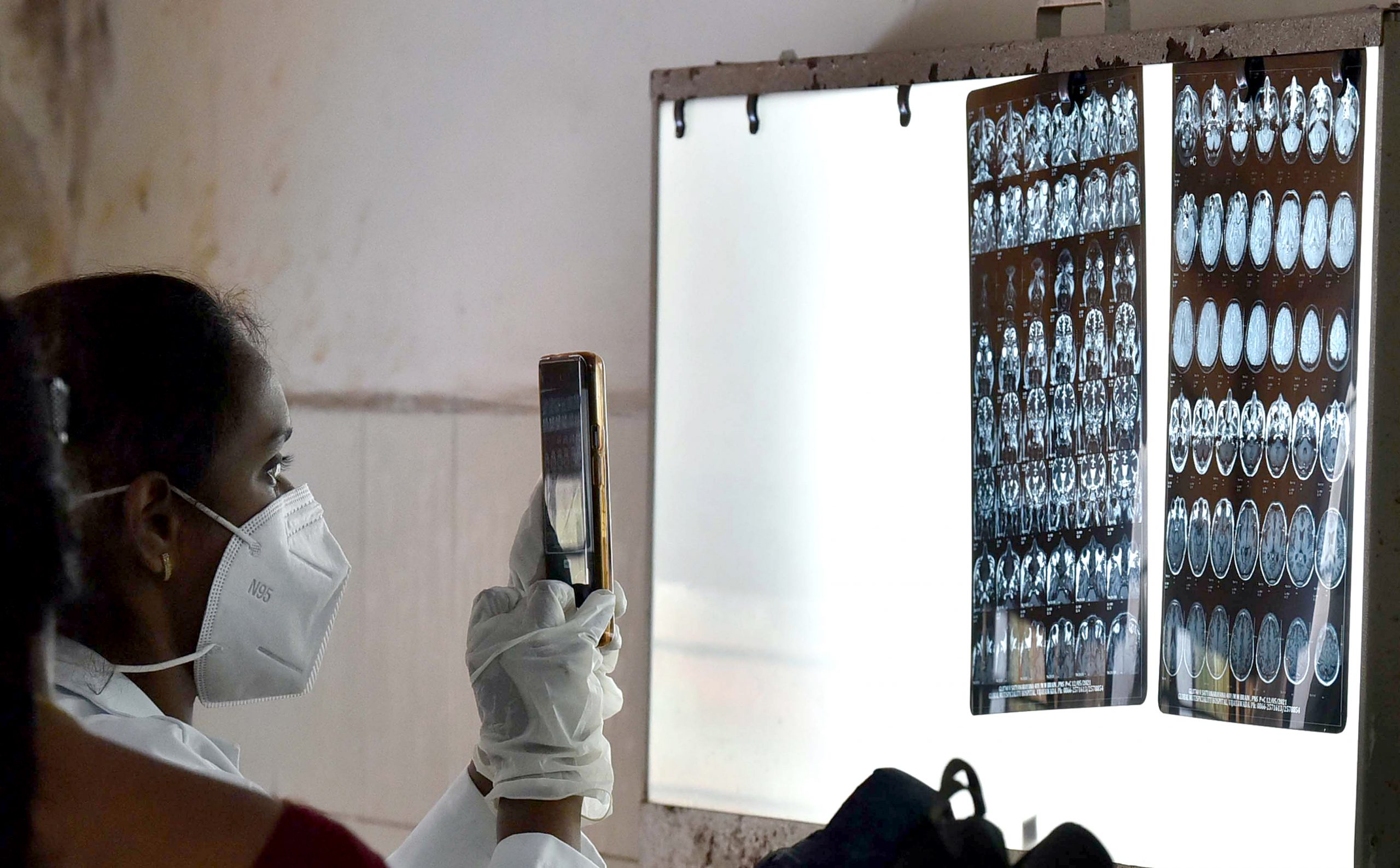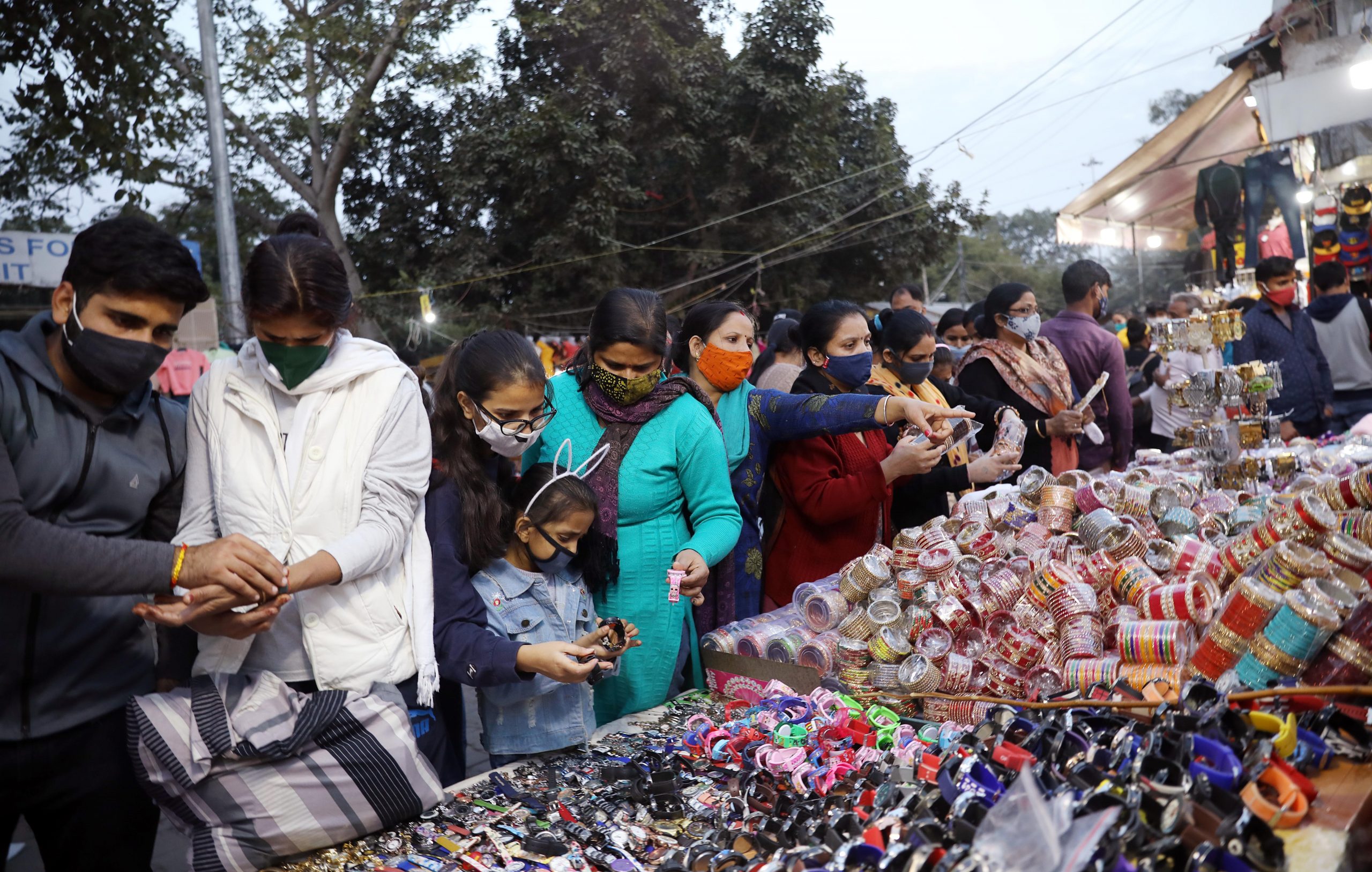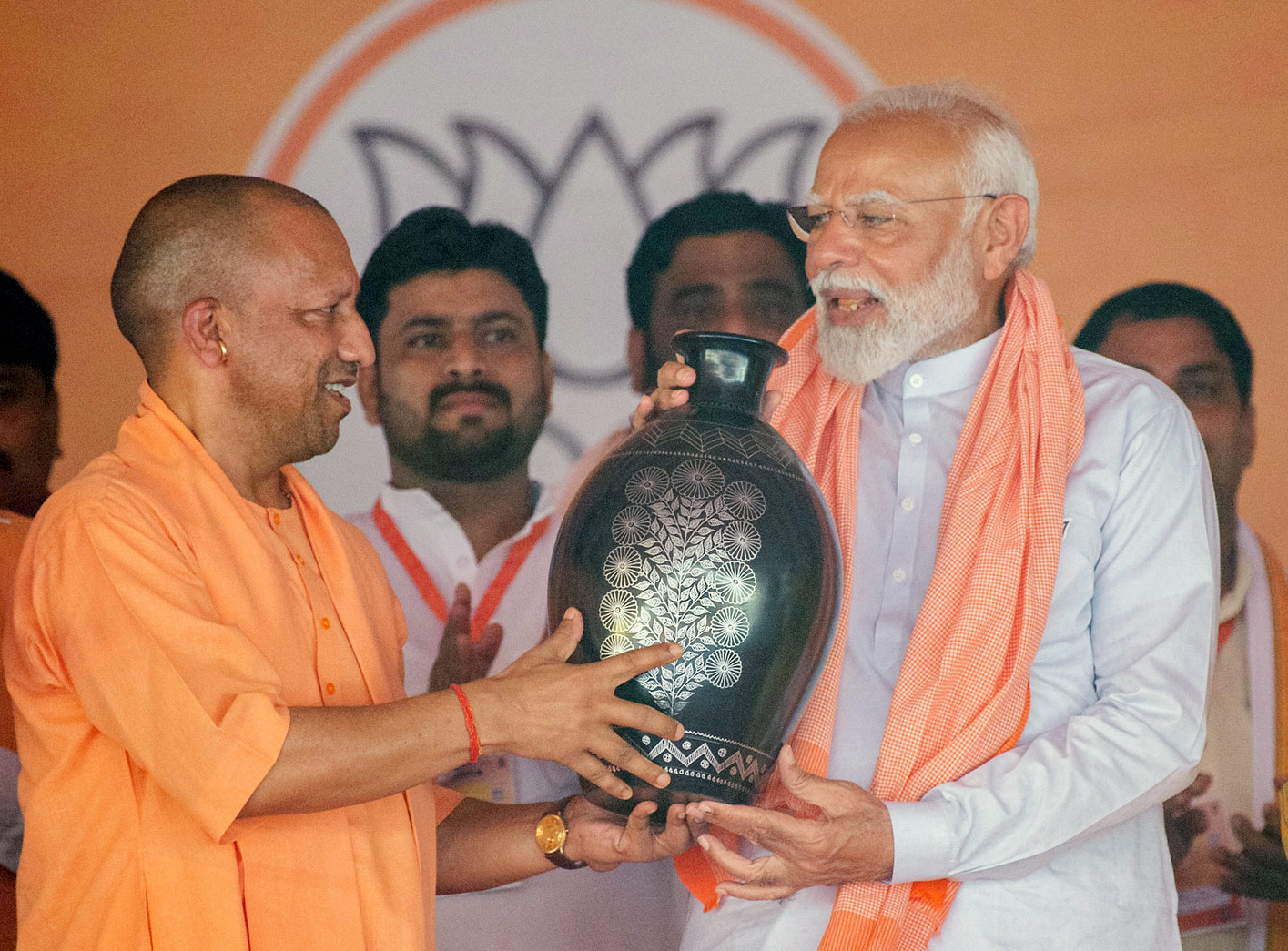Even as Covid-19 continues to ravage India, an epidemic of Black Fungus is now killing people in hundreds. Can the Indian government handle two major healthcare crises at the same time?
Our Bureau
New Delhi
India is living a horror as people are leaving the bodies of their loved ones in the Ganges river. In the last week or so, several corpses have been found floating in the Ganga or buried near its banks across Uttar Pradesh and Bihar. Local residents have complained of stench coming from the bloated, decomposing corpses and accused the authorities of ineptitude.
These incidents have sparked fears about the scale of the COVID crisis in the country. Authorities believe the relatives of those who succumbed to the virus, may not have been able to find space for the last rites.
As if the Covid-19 pandemic was not enough, India is now facing another epidemic called Black Fungus.
Mucormycosis is a rare fungal disease commonly being detected in the Covid-19 patients who are in the recovery phase. Doctors are linking the sudden surge in Mucormycosis cases to the use of steroids to treat Covid-19 patients.
Cases of ‘black fungus’ infection are being reported in several parts of the country. States like Rajasthan, Gujarat, Punjab, Haryana, Karnataka, Odisha, Telangana and Tamil Nadu have already declared it a ‘notifiable’ disease under the Epidemic Diseases Act, thereby making it mandatory to report every Mucormycosis case to the state government.
Amid the rising concern of black fungus cases in addition to the COVID pandemic, the rare cases of Mucormycosis of the small intestine have been reported in Delhi’s Sir Ganga Ram Hospital.
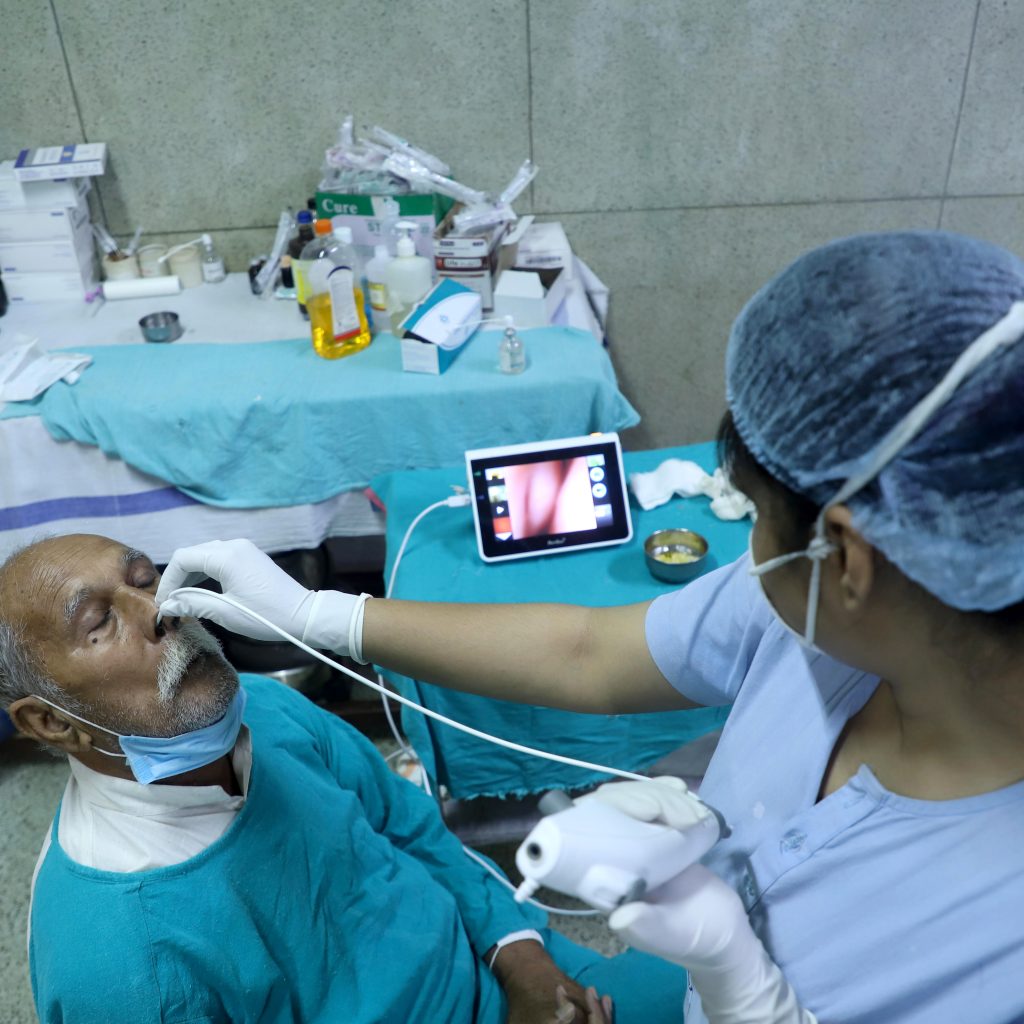
Madhya Pradesh, May 20 (ANI): A medic performs a diagnostic endoscopy in Jabalpur on Thursday. (ANI) 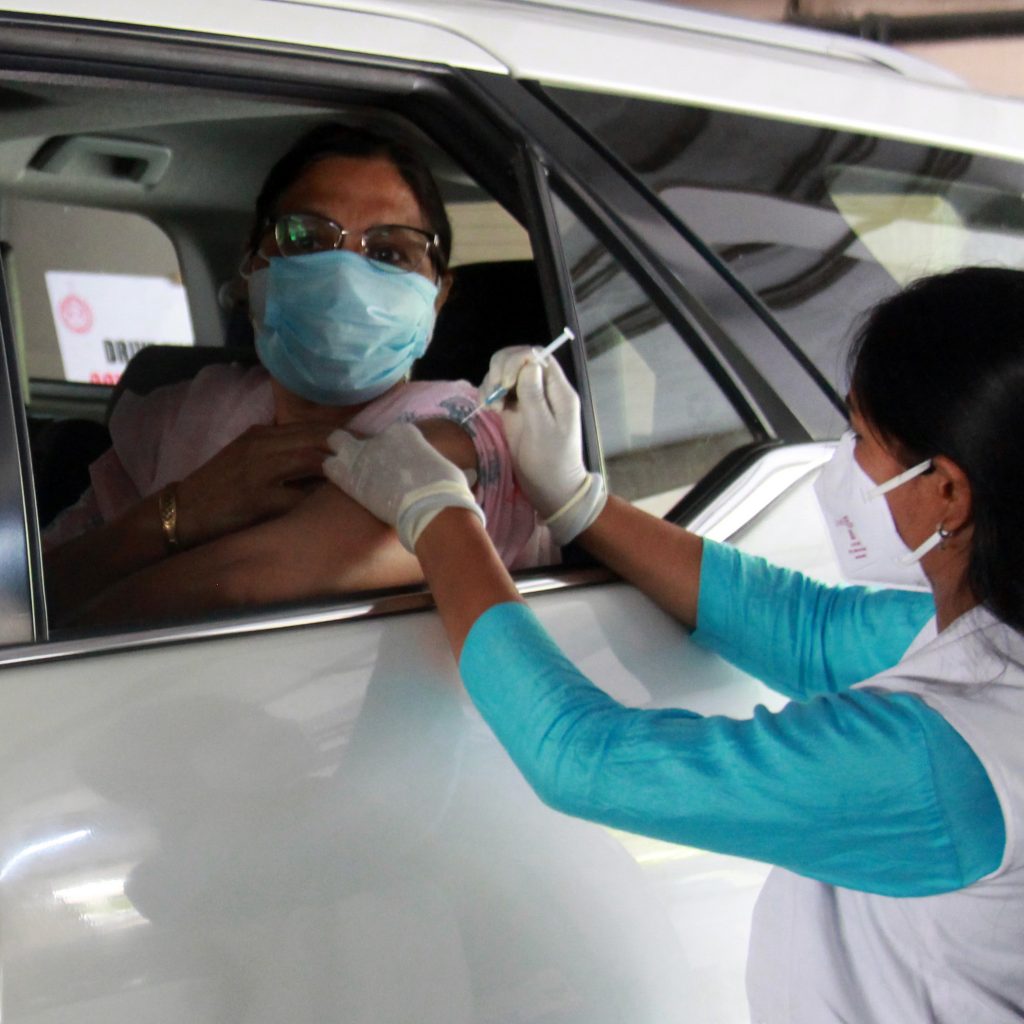
A health worker gives a dose of COVID-19 vaccine to a beneficiary, in Gurugram on Sunday. (ANI)
The fungal infection, which is caused by exposure to mucor mould that is commonly found in soil, plants, manure, and decaying fruits and vegetables, affects the brain, lungs, and sinuses and can be lethal to those suffering from diabetes and having compromised immune systems such as cancer patients or people with HIV/AIDS.
And yet again the government is failing big time in fighting the new disease. Amid the rising cases of Mucormycosis or ‘black fungus’, the Union Health Ministry on Saturday said the availability of Amphotericin-B, the key drug to treat the deadly disease is now being increased and the ministry is in touch with five additional manufacturers.
During the press interaction, the Health ministry also briefed that states are advised towards the need for Infection Prevention and Control (IPC) to manage fungal infections in health facilities like establishing/activating the Hospital Infection Control Committee, taking transmission-based precautions with focus on droplet, airborne and contacts to protect healthcare workers and ensure patient safety; ensuring effective Biomedical Waste Management and Enhanced IPC practices in ICU, Labs, etc. with focus on immuno-compromised patients, on steroid treatment and with comorbidities
AIIMS Delhi Director Dr Randeep Guleria also pointed out that there has been an increasing trend of rise in fungal infection in the last few weeks being seen among those recovering from COVID-19 with several states reporting an increase in the cases of black fungus. “The Covid-19-linked infection has claimed more than 7,000 lives in the country,” said Dr Guleria.
Patients within six weeks of COVID treatment are at the highest risk of black fungus, said senior neurosurgeon at AIIMS. Professor of Neurosurgery at AIIMS, Dr P Sarat Chandra said, “One of the most important reasons is uncontrolled diabetes, systemic use of steroids along with tocilizumab, patients on ventilation and taking supplemental oxygen. Within six weeks of COVID treatment if people have any of these factors they are at the highest risk of black fungus.” He cautioned that giving cold oxygen directly from cylinders could be very dangerous for patients.
“Giving cold oxygen directly from the cylinder is very dangerous. Anti-fungal drug Posaconazole can be given to high-risk individuals to reduce incidents of black fungus,” added Dr Chandra.
On the issue of masks, Dr Chandra said, “Prolonged use of masks to be discouraged as any cloth mask kept in a damp place with prolonged use may catch fungus. Cloth masks should be washed every day and N95 masks preferably discarded after five uses. Rotatory use of masks preferred that is, keep one mask for every day of the week and rotate them again.
Cases of ‘black fungus’ infection are being reported in several parts of the country. States like Rajasthan, Gujarat, Punjab, Haryana, Karnataka, Odisha, Telangana and Tamil Nadu have already declared it a ‘notifiable’ disease under the Epidemic Diseases Act, thereby making it mandatory to report every Mucormycosis case to the state government.
Amid the rising concern of black fungus cases in addition to the COVID pandemic, the rare cases of Mucormycosis of the small intestine have been reported in Delhi’s Sir Ganga Ram Hospital.
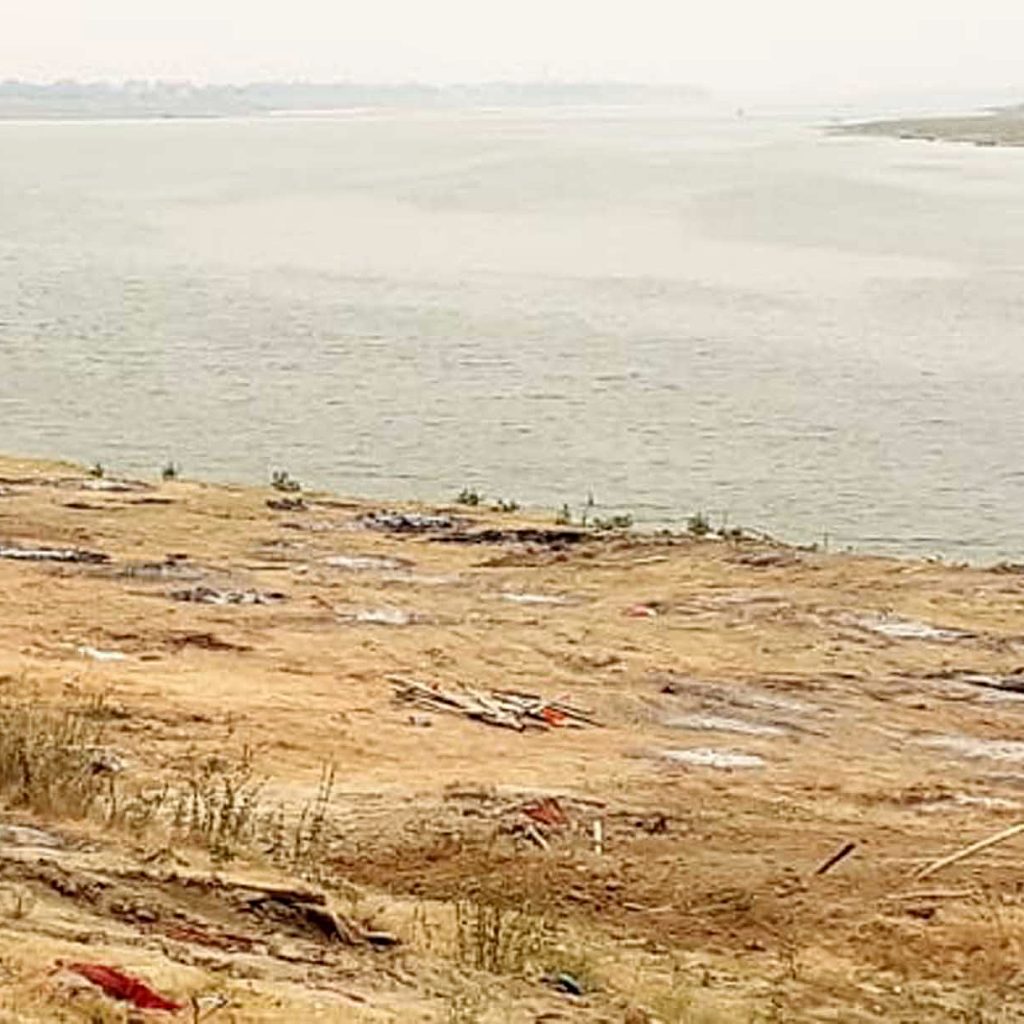
A view of the bank of river Ganga after district administration clean drive after dozens of bodies found (ANI) 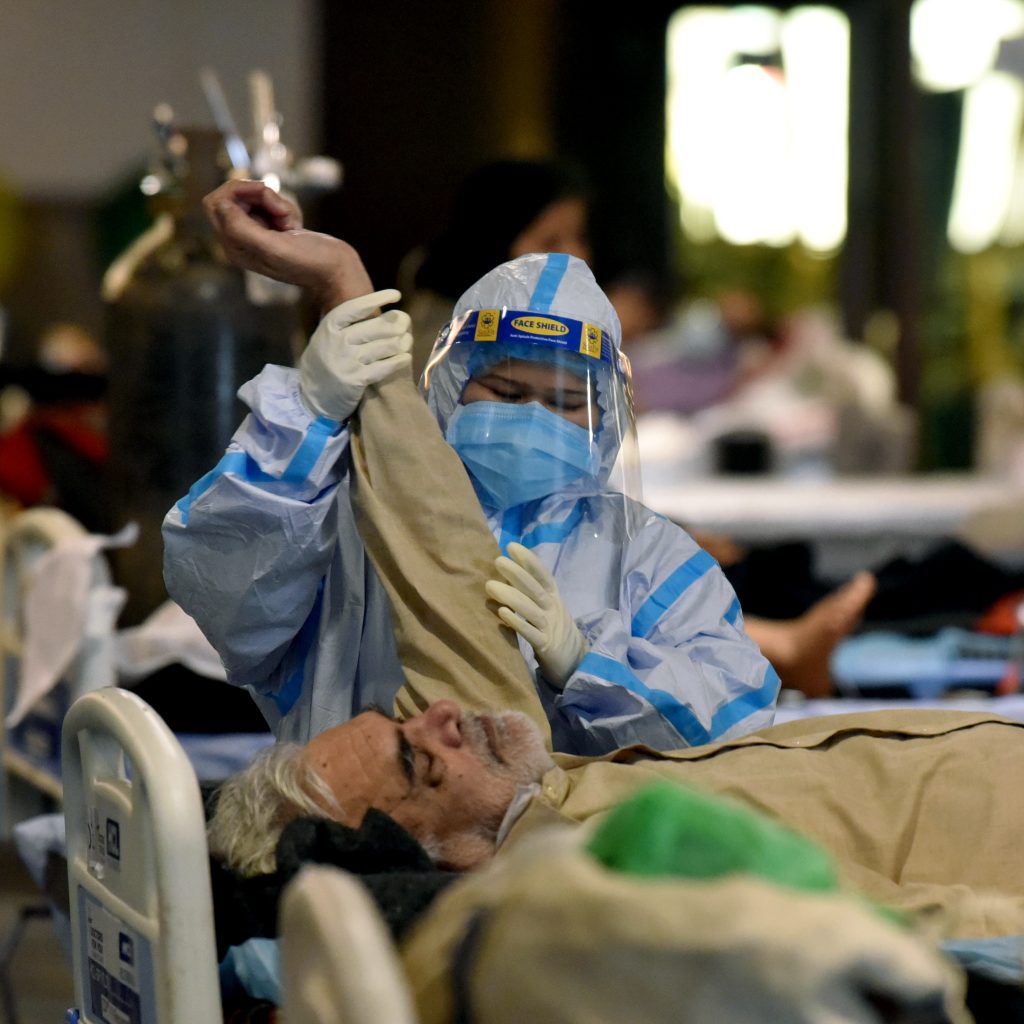
Health workers in PPE kits attend a COVID19 patient inside a temporarily converted isolation in New Delhi (ANI)
Meanwhile, after reviewing the rising number of cases of Mucormycosis or black fungus infections in various states, Union Minister for Chemicals and Fertilizers DV Sadananda Gowda announced that the Centre has allocated a total of 23680 additional vials of Amphotericin- B to all states and Union Territories on Saturday.
Taking to Twitter, Gowda informed that the allocation has been made based on the total number of patients, which is approximately 8848 across the country. “After a detailed review of rising number of cases of Mucormycosis in various states, a total of 23680 additional vials of Amphotericin- B have been allocated to all States/UTs today. The Allocation has been made based on the total number of patients which is approximately 8848 across the country,” the Union Minister tweeted.
According to a list of Mucormycosis cases reported across the country cited by the Minister, Gujarat has a maximum number of cases (2281), followed by Maharashtra (2000) and Andhra Pradesh (910). As per the Union Health Ministry, Mucormycosis is being detected among patients who are recovering or have recovered from COVID-19.
“Moreover, anyone who is diabetic and whose immune system is not functioning well needs to be on the guard against this. The disease is caused by a set of micro-organisms known as mucormycetes, which are present naturally in the environment, seen mostly in soil and in decaying organic matter like leaves, compost and piles,” the Ministry had earlier said.
It stated that the treatment of COVID-19 patients involves the intake of drugs like dexamethasone, which suppresses our immune system response. Due to these factors, COVID-19 patients face a renewed risk of failing the battle against attacks mounted by organisms such as mucormycetes.
The Union Health Ministry on Friday wrote to the all the states and union territories (UTs) advising them to review their preparedness for infection prevention and control, as well as hygiene and sanitation in hospitals.
The states and UTs have been asked to improve the environment and facilitate ventilation with focus on fresh air and natural ventilation wherever control systems with requisite air changes are not available, cleaning, disinfection and sanitation of the hospital environment and frequently touched surfaces, with recommended disinfectants like one per cent sodium hypochlorite or 70 per cent alcohol, safe water and food to prevent water or food borne diseases in hospital settings and Biomedical waste management as per the CPCB guidelines.
It also mentioned that infection prevention and control practices need to be enhanced in Intensive Care Units (ICUs) using a bundle-approach to prevent device-associated infections such as ventilator associated pneumonia or catheter-associated blood stream, urinary infections etc.
Infection Prevention and control practise in the clinical laboratories and those attached to hospitals are very crucial for the safety of laboratory/hospital staff and health security of the community, it said. Meticulous adherence to Infection Prevention and Control while managing immunocompromised patients such as COVID-19 patients on steroid treatment, with co-morbidities, the letter underlined.
A State Nodal Officer needs to be identified to monitor the implementation of infection prevention and control to provide evaluation and feedback of the IPC programme in the state. States and UTs have been assured that the Ministry of Health and Family Welfare will provide all necessary assistance to implement the National Guidelines for Infection Prevention and Control in Healthcare Facilities.
India’s response to the pandemic has been awful. Now, the attack by a second infection may make the situation worse.
















